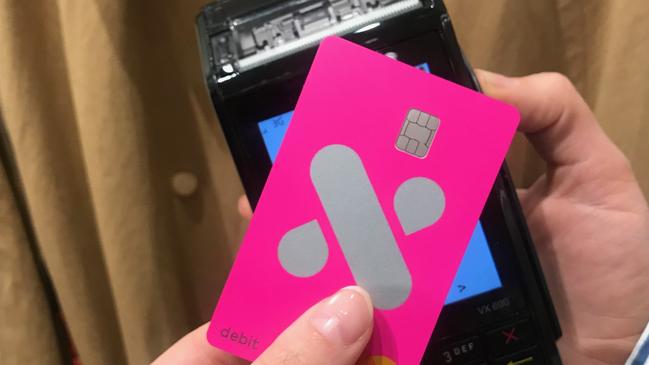Neobank Xinja hands back banking licence
Neobank Xinja blames COVID-19 pandemic and a difficult capital raising environment for its failure.

Neobank Xinja will hand back its banking licence and remove its transaction and savings products, blaming the COVID-19 pandemic and a difficult capital-raising environment for its failure, and the industry is being warned it could be the first of more closures.
Chief executive Eric Wilson announced the closure in a letter to customers on Wednesday. Xinja was already returning their deposits and instead would focus on its US share trading product.
“After a year marked by COVID-19 and an increasingly difficult capital-raising environment, and following a review of the market in Australia, Xinja has decided to withdraw the bank account and Stash (savings) account and cease being a bank,” he said.
“This was an incredibly hard decision,”
Mr Wilson, who on Wednesday disabled his social media accounts, said Xinja customers should transfer their money elsewhere as soon as possible.
The Australian Prudential Regulation Authority noted Xinja’s decision to exit the banking industry and pursue other business opportunities “is a commercial decision for Xinja”.
“As Australia’s financial safety regulator, APRA will closely monitor the return of deposits to ensure all funds are returned to Xinja depositors in an orderly and timely manner,” a spokesman said.
Xinja is the first of the neobanks launched in recent years to quit banking as ultra-low interest rates crunch profit margins across the entire industry. Critics have claimed the new entrants don’t have enough product differentiation to lure customers away from the big four.
Xinja had $413m in retail deposits on its balance sheet at the end of October, according to APRA figures. The bank had written no loans, the figures show.
The neobank posted a loss of $35.8m for the year to the end of June, according to its most recent annual report. This had deepened from a $21m loss a year earlier. The bank also had negative cash outflows of $38m for the 2020 financial year and net assets of $25m.
A note in the accounts from Xinja’s auditors PwC said there was a “material uncertainty” that might cast “significant doubt on the group’s ability to continue as a going concern”. PwC noted Xinja was “highly dependent on raising additional capital to fund its continuing development activities while maintaining sufficient levels of capital above the minimum prudential capital requirements”.
Xinja announced a $433m capital raise from Dubai-based World Investments for a 40 per cent stake in March, but in May blamed United Arab Emirates regulators and COVID-19 for a delay in receiving the investment.
The chief executive of ASX-listed fintech Douugh, Andy Taylor, told The Australian neobanks had a noble goal but more local closures were likely.
“To be a deposit-taking institution, competing with traditional banks with the same capital requirements but far fewer ways to make money, was never a winning proposition,” he said.
“In Australia APRA defines neobanks as deposit-taking institutions, and that model cannot work because you just can’t compete with the banks at their own game. But arguably, nor should you. Banks for the most part do a good job of being banks.
“What the market needs is what neobanks as they’re defined elsewhere in the world can deliver: innovative new ways to interact with and manage your finances, where all the focus is on the individual customer and meeting their needs in the most granular way.”
Volt was another neobank to take an immediate COVID hit, and it hit pause on the public launch of deposit products earlier this year. It operates a banking-as-a-service platform it says is more resilient than others’ business models. Chief executive Steve Weston said his neobank was “operating as usual with a careful eye on costs”.
“The neobank sector was created to bring much needed competition to the Australian banking sector. That competition is needed today more than ever,” he said.
Neobank rival 86400 chief executive Robert Bell said: “It’s sad to see a little less choice in the market today, but it underlines the importance of what we’re building: a smarter alternative to traditional banking, purpose-driven to help Australians feel in control of their money both now and in years to come. Our momentum hasn’t slowed this year. We’ve raised over $32m in additional capital in recent months as part of our Series B capital raise and are well positioned to continue our rapid growth, have an ambitious product pipeline that we’re delivering on, despite external challenges, and are continuing to grow our lending product.
“In fact, November was our largest month for home loan applications. We’re optimistic for the year ahead.”
In Xinja’s most recent annual report, Mr Wilson lamented the “sad reality of a lack of investment capital” which meant the company had to cut both expenses and product development plans.




To join the conversation, please log in. Don't have an account? Register
Join the conversation, you are commenting as Logout